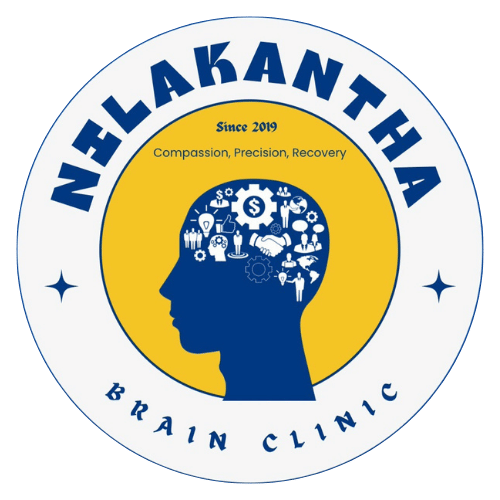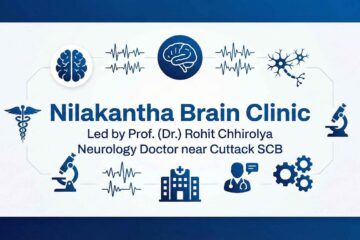
Why Your Brain Needs a Check-Up Too
Your brain is the command center of your body. When something goes wrong—whether it’s headaches, memory loss, or nerve damage—neurological tests become the key to unlocking the mystery. These tests help neurologists like Prof. (Dr.) Rohit Chhirolya, DM Neurology, pinpoint issues invisible to the naked eye. In this guide, we’ll demystify common neurological tests, their purpose, and what they reveal about your brain health.
1. What Are Neurological Tests?
Neurological tests are tools used to assess the health of your brain, spinal cord, and nerves. They range from simple physical exams to advanced imaging scans. Think of them as a “brain audit” that helps:
- Diagnose conditions (stroke, epilepsy, Parkinson’s).
- Track disease progression.
- Evaluate treatment effectiveness.
Did You Know?
“A timely neurological test can detect problems years before symptoms escalate.”
– Prof. (Dr.) Rohit Chhirolya, DM Neurology
2. Common Neurological Tests & What They Reveal
2.1 Physical Neurological Exam
- What it involves: Reflex tests, muscle strength checks, balance assessments.
- Reveals: Nerve damage, motor disorders (e.g., ALS), or stroke effects.
- Why it’s done: First-line screening for unexplained weakness or numbness.
2.2 MRI (Magnetic Resonance Imaging)
- What it involves: Detailed 3D brain imaging using magnetic fields.
- Reveals: Tumors, MS lesions, strokes, or structural abnormalities.
- Pro Tip: Combines with contrast dye for enhanced clarity.
2.3 EEG (Electroencephalogram)
- What it involves: Sensors on the scalp measuring electrical brain activity.
- Reveals: Seizure patterns, epilepsy, sleep disorders.
2.4 EMG/NCS (Electromyography & Nerve Conduction Studies)
- What it involves: Small electrical pulses testing nerve/muscle function.
- Reveals: Neuropathies (e.g., diabetic nerve damage), carpal tunnel syndrome.
2.5 Lumbar Puncture (Spinal Tap)
- What it involves: Collecting cerebrospinal fluid (CSF) via a needle.
- Reveals: Infections (meningitis), autoimmune disorders, bleeding.
3. When Are Neurological Tests Recommended?
Seek testing if you experience:
- Headaches: Persistent or severe.
- Cognitive Changes: Memory loss, confusion.
- Movement Issues: Tremors, poor coordination.
- Sensory Symptoms: Numbness, tingling, vision loss.
“Ignoring subtle signs like brain fog or dizziness can delay critical interventions.”
– Dr. Chhirolya, Cuttack’s top neurologist
When to consult a neurologist?
4. How to Prepare for Neurological Tests
Before an MRI/CT Scan
- Remove metal objects (jewelry, watches).
- Inform your doctor about implants (pacemakers, cochlear devices).
Before an EEG
- Avoid caffeine.
- Wash hair (no oils/sprays).
Before Blood Tests
- Fast if required (e.g., for metabolic panels).
5. Interpreting Your Results: A Simplified Guide
| Test | Normal Result | Abnormal Indicator |
|---|---|---|
| MRI | Symmetrical brain structures | Tumors, lesions, atrophy |
| EEG | Consistent brain waves | Spike patterns (epilepsy) |
| EMG | Steady muscle signals | Delayed responses (nerve damage) |
Note: Always discuss results with a neurologist—self-diagnosis risks misinterpretation!
6. Why Choose a Specialist? The Cuttack Advantage
Accurate diagnosis requires expertise. As the best neurologist in Cuttack, Dr. Rohit Chhirolya emphasizes:
- Advanced Technology: Nilakantha Brain Clinic uses 3T MRI and digital EEG systems.
- Holistic Analysis: Connecting test results to symptoms, lifestyle, and medical history.
- Personalized Care: Tailoring treatments based on diagnostic insights.
Success Story:
*”EEG-guided therapy reduced a patient’s seizures by 90% in 6 months.”*
7. FAQs About Neurological Tests
Q: Are these tests painful?
A: Most are non-invasive (MRI, EEG). EMG may cause mild discomfort.
Q: How long does testing take?
A: 30 mins (EEG) to 2 hours (MRI + consultation).
Q: Can children undergo these tests?
A: Yes! Child-friendly protocols are available.
Q: Where can I find the best neurologist in Cuttack?
A: Dr. Rohit Chhirolya at Nilakantha Brain Clinic.
Q: Can neurological tests detect anxiety or depression?
A: While tests like EEG or fMRI may show brain activity patterns associated with mood disorders, they don’t directly diagnose psychiatric conditions. A comprehensive evaluation by the best neurologist in Cuttack combines clinical interviews, symptom analysis, and targeted testing to differentiate neurological vs. psychological causes.
Q: How do I know if I need an EMG vs. a nerve conduction study?
A: EMG (Electromyography) assesses muscle electrical activity (e.g., muscle weakness).
NCS (Nerve Conduction Study) measures nerve signal speed (e.g., numbness/tingling).
Often performed together, these tests help diagnose conditions like carpal tunnel or neuropathy. The best neurologist in Cuttack determines the appropriate combination based on symptoms.
Q: Are there child-friendly neurological tests?
A: Yes! Pediatric adaptations include:
Play-based cognitive assessments
Quick “nap EEGs” for infants
Fear-free MRI simulations
Clinics like Nilakantha Brain Clinic use child-centric protocols to reduce anxiety.
Q: What does “abnormal EEG” really mean?
A: An abnormal EEG may indicate:
Epileptic activity (spikes/waves)
Encephalitis patterns
Metabolic imbalances
However, findings require expert interpretation. Dr. Rohit Chhirolya emphasizes: “Isolated abnormalities without clinical symptoms rarely warrant alarm.”
Q: Can I eat before a lumbar puncture?
A: Fasting is not required. However:
Avoid blood-thinning medications (aspirin/warfarin) 72hrs prior.
Hydrate well to ease CSF fluid collection.
Plan rest for 24hrs post-procedure to prevent headaches.
Q: How often should seniors get cognitive testing?
A: Baseline testing at age 65 is ideal, with follow-ups:
Every 2–3 years if low risk
Annually if MCI/mild symptoms exist
Early detection of neurological decline in seniors allows timely intervention.
Your Brain Deserves Expert Care
Neurological tests are the compass guiding brain health journeys. Whether you’re battling migraines, memory lapses, or nerve pain, these tests unlock answers that transform lives. For precise diagnostics and compassionate care, trust Cuttack’s leading neurologist.
Ready to Unlock Your Brain’s Secrets?
📞 Call 7985022365
🌐 Book Online: Nilakantha Brain Clinic
Follow for Brain Health Tips:

